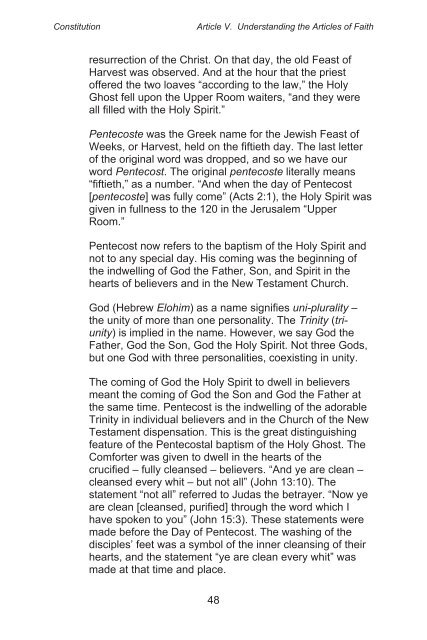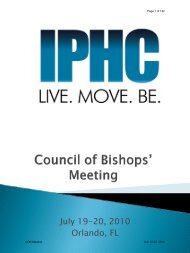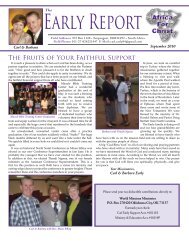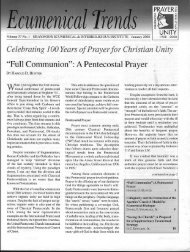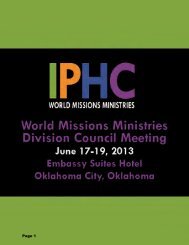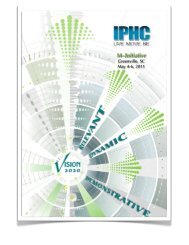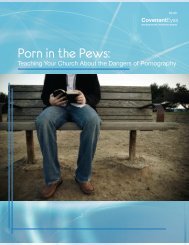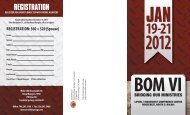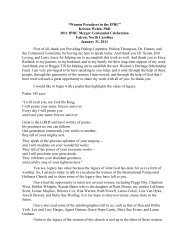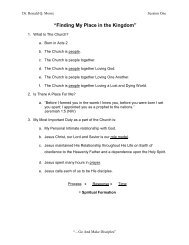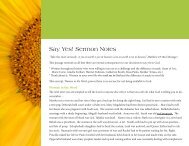IPHC Church Manual - Extension Loan Fund
IPHC Church Manual - Extension Loan Fund
IPHC Church Manual - Extension Loan Fund
Create successful ePaper yourself
Turn your PDF publications into a flip-book with our unique Google optimized e-Paper software.
Constitution<br />
Article V. Understanding the Articles of Faith<br />
resurrection of the Christ. On that day, the old Feast of<br />
Harvest was observed. And at the hour that the priest<br />
offered the two loaves “according to the law,” the Holy<br />
Ghost fell upon the Upper Room waiters, “and they were<br />
all filled with the Holy Spirit.”<br />
Pentecoste was the Greek name for the Jewish Feast of<br />
Weeks, or Harvest, held on the fiftieth day. The last letter<br />
of the original word was dropped, and so we have our<br />
word Pentecost. The original pentecoste literally means<br />
“fiftieth,” as a number. “And when the day of Pentecost<br />
[pentecoste] was fully come” (Acts 2:1), the Holy Spirit was<br />
given in fullness to the 120 in the Jerusalem “Upper<br />
Room.”<br />
Pentecost now refers to the baptism of the Holy Spirit and<br />
not to any special day. His coming was the beginning of<br />
the indwelling of God the Father, Son, and Spirit in the<br />
hearts of believers and in the New Testament <strong>Church</strong>.<br />
God (Hebrew Elohim) as a name signifies uni-plurality –<br />
the unity of more than one personality. The Trinity (triunity)<br />
is implied in the name. However, we say God the<br />
Father, God the Son, God the Holy Spirit. Not three Gods,<br />
but one God with three personalities, coexisting in unity.<br />
The coming of God the Holy Spirit to dwell in believers<br />
meant the coming of God the Son and God the Father at<br />
the same time. Pentecost is the indwelling of the adorable<br />
Trinity in individual believers and in the <strong>Church</strong> of the New<br />
Testament dispensation. This is the great distinguishing<br />
feature of the Pentecostal baptism of the Holy Ghost. The<br />
Comforter was given to dwell in the hearts of the<br />
crucified – fully cleansed – believers. “And ye are clean –<br />
cleansed every whit – but not all” (John 13:10). The<br />
statement “not all” referred to Judas the betrayer. “Now ye<br />
are clean [cleansed, purified] through the word which I<br />
have spoken to you” (John 15:3). These statements were<br />
made before the Day of Pentecost. The washing of the<br />
disciples’ feet was a symbol of the inner cleansing of their<br />
hearts, and the statement “ye are clean every whit” was<br />
made at that time and place.<br />
48


